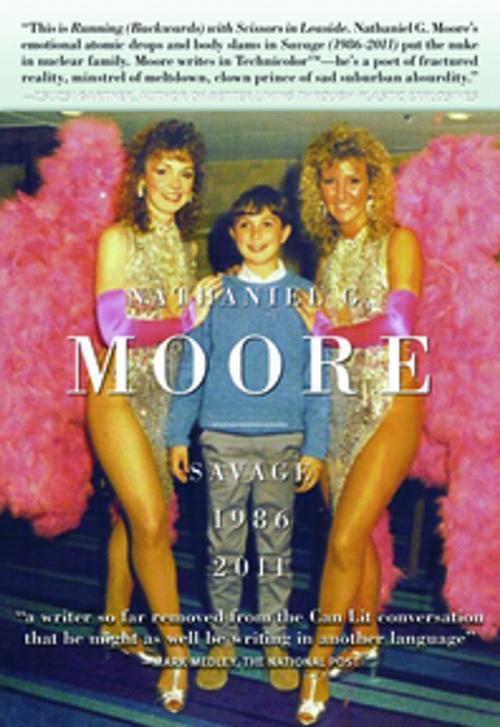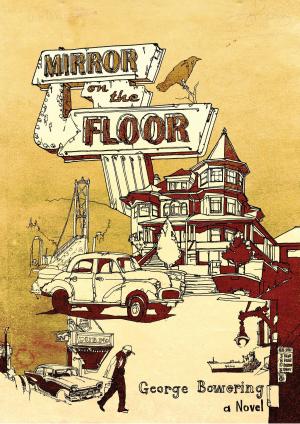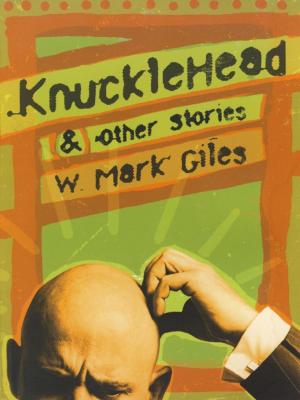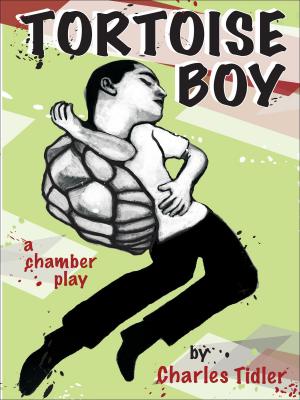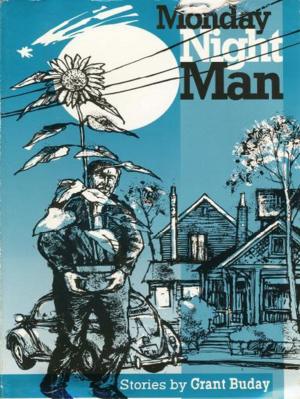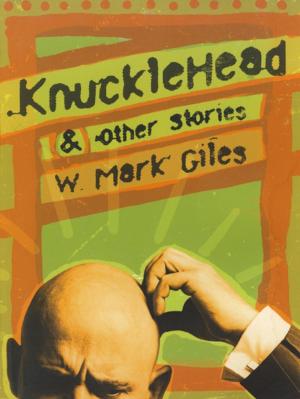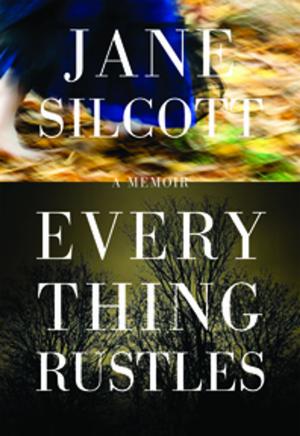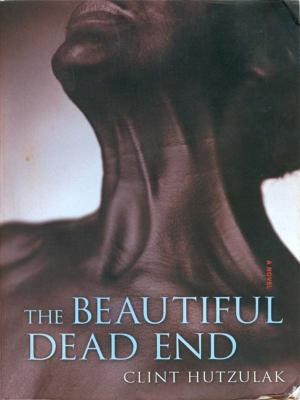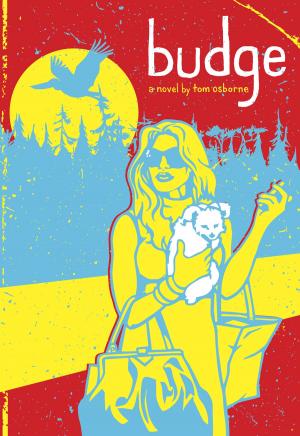| Author: | Nathaniel G. Moore | ISBN: | 9781927380871 |
| Publisher: | Anvil Press | Publication: | October 3, 2014 |
| Imprint: | Anvil Press | Language: | English |
| Author: | Nathaniel G. Moore |
| ISBN: | 9781927380871 |
| Publisher: | Anvil Press |
| Publication: | October 3, 2014 |
| Imprint: | Anvil Press |
| Language: | English |
Winner, ReLit Award (Novel)
CBC Books' "Writers to Watch" Pick
Nate’s nervous mother chews gum at warp speed and has a bob that resembles Darth Vader’s helmet. His icy father dabbles part-time in the death trade at a funeral home after working for a decade in the insurance racket. His older sister Holly is always lurking in the shadows or away at school. Nate, a creative, messy, and anxious teen, has chosen Randy Savage as his hero. As he finishes high school, the world to which Savage belongs is quickly waning in popularity, and Nate begins to see the wrestler’s downfall mirrored in his own life. But not until the family dismantles for good in 1994 does Nate’s life truly begin to fracture.
Savage 1986-2011 chronicles the middle-class implosion of Nate’s nuclear family, bracketed by July 1986—when he first saw Randy Savage in person—and the wrestler’s sudden death in May 2011. When Savage dies, Nate is freed from beliefs—once a source of beauty and escape—that had come to constrict him, fusing him to a moribund past.
The novel is about the blurred lines between child and adult roles and the ever-changing landscape of interior heroism. Whether dealing with a family’s economic turbulence, the scarring effects of teenage love, or creating a new family order, Moore revisits, remasters, and repackages a twenty-five year family odyssey with guts, honesty, and love.
Praise for Savage 1986-2011:
“This is Running Backwards with Scissors in Leaside. Nathaniel G. Moore’s emotional atomic drops and body slams in Savage (1986-2011) put the nuke in nuclear family. Moore writes in Technicolor™—he’s a poet of fractured reality, minstrel of meltdown, clown prince of sad suburban absurdity.” (Zsuzsi Gartner, author of Better Living Through Plastic Explosives)
"... Savage 1986-2011 is a reminder that no love is easy, and scars might never fade, but they can heal. Better, they may even end up transformed, like so many blue Mondays made into art." (The National Post)
"Writing in 2009 for the National Post, Mark Medley dubbed author Nathaniel G. Moore 'a writer so far removed from the CanLit conversation that he might as well be writing in another language'—an honour that may at first glance sound like baffled, even backhanded praise, but trust me: if you've got your head screwed on right, this is the best of compliments. So it is with Moore's latest, Savage 1986-2011, a novel released this month from Vancouver's Anvil Press, and which continues to defy the narrative and stylistic clichés of our award-winning tomes while still (somehow) remaining utterly Canadian, utterly Torontonian, and utterly of its time. We read for so many reasons, but if 'social change' is yours, then Savage is a must, boasting a sweeping tour of nostalgia, melancholy, and private, pop-addled history, ranging from the Cold War Reagonomics of 1980s Leaside to the Post-Sacred haunts of late-2000s Bloorcourt. Twinning the crumbling mausoleums of our collective spectacles to a private coming-of-age story like you've never read, Savage judders with vitality, mourning a life lived in the spotlight of art, beneath the menace of family, and ravaged by the forever-cuts of love." (Spencer Gordon)
Winner, ReLit Award (Novel)
CBC Books' "Writers to Watch" Pick
Nate’s nervous mother chews gum at warp speed and has a bob that resembles Darth Vader’s helmet. His icy father dabbles part-time in the death trade at a funeral home after working for a decade in the insurance racket. His older sister Holly is always lurking in the shadows or away at school. Nate, a creative, messy, and anxious teen, has chosen Randy Savage as his hero. As he finishes high school, the world to which Savage belongs is quickly waning in popularity, and Nate begins to see the wrestler’s downfall mirrored in his own life. But not until the family dismantles for good in 1994 does Nate’s life truly begin to fracture.
Savage 1986-2011 chronicles the middle-class implosion of Nate’s nuclear family, bracketed by July 1986—when he first saw Randy Savage in person—and the wrestler’s sudden death in May 2011. When Savage dies, Nate is freed from beliefs—once a source of beauty and escape—that had come to constrict him, fusing him to a moribund past.
The novel is about the blurred lines between child and adult roles and the ever-changing landscape of interior heroism. Whether dealing with a family’s economic turbulence, the scarring effects of teenage love, or creating a new family order, Moore revisits, remasters, and repackages a twenty-five year family odyssey with guts, honesty, and love.
Praise for Savage 1986-2011:
“This is Running Backwards with Scissors in Leaside. Nathaniel G. Moore’s emotional atomic drops and body slams in Savage (1986-2011) put the nuke in nuclear family. Moore writes in Technicolor™—he’s a poet of fractured reality, minstrel of meltdown, clown prince of sad suburban absurdity.” (Zsuzsi Gartner, author of Better Living Through Plastic Explosives)
"... Savage 1986-2011 is a reminder that no love is easy, and scars might never fade, but they can heal. Better, they may even end up transformed, like so many blue Mondays made into art." (The National Post)
"Writing in 2009 for the National Post, Mark Medley dubbed author Nathaniel G. Moore 'a writer so far removed from the CanLit conversation that he might as well be writing in another language'—an honour that may at first glance sound like baffled, even backhanded praise, but trust me: if you've got your head screwed on right, this is the best of compliments. So it is with Moore's latest, Savage 1986-2011, a novel released this month from Vancouver's Anvil Press, and which continues to defy the narrative and stylistic clichés of our award-winning tomes while still (somehow) remaining utterly Canadian, utterly Torontonian, and utterly of its time. We read for so many reasons, but if 'social change' is yours, then Savage is a must, boasting a sweeping tour of nostalgia, melancholy, and private, pop-addled history, ranging from the Cold War Reagonomics of 1980s Leaside to the Post-Sacred haunts of late-2000s Bloorcourt. Twinning the crumbling mausoleums of our collective spectacles to a private coming-of-age story like you've never read, Savage judders with vitality, mourning a life lived in the spotlight of art, beneath the menace of family, and ravaged by the forever-cuts of love." (Spencer Gordon)
